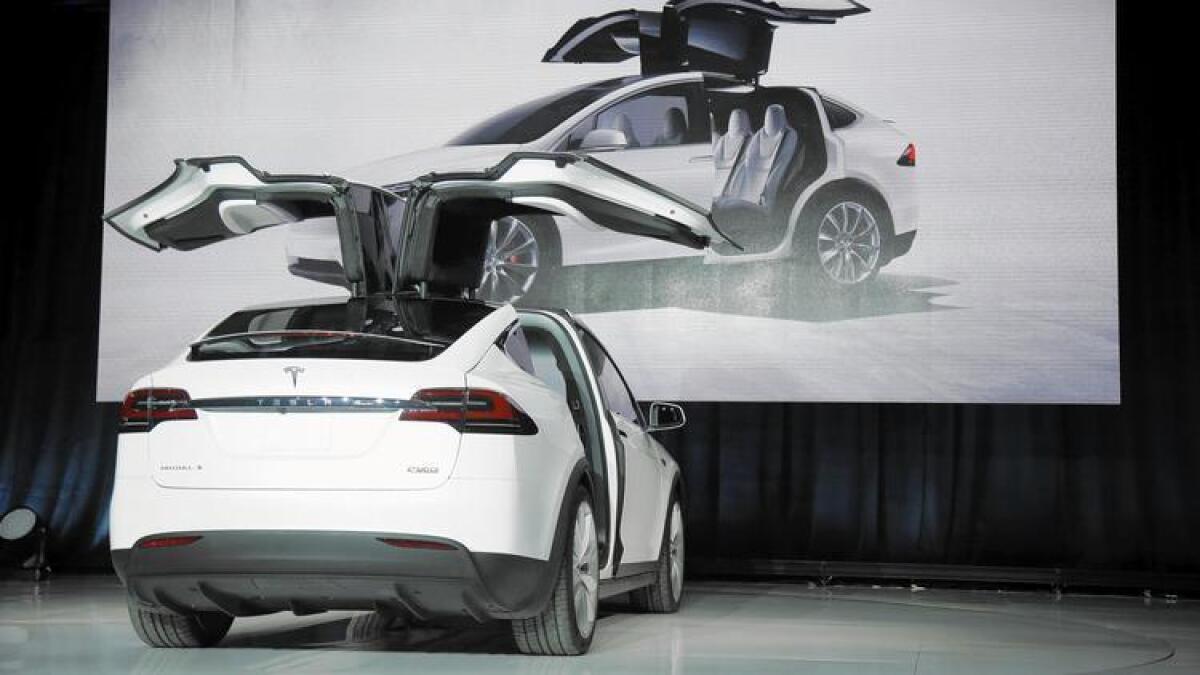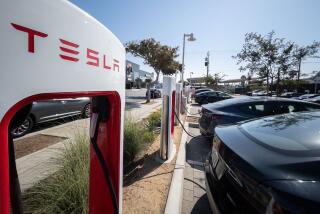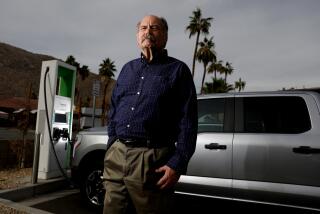Readers React: The debate over Tesla tax breaks

A small business owner with substantial federal tax exposure could place an order for Tesla’s new seven-seater Model X and collect up to $35,000 in tax and government rebate benefits.
While the testy debate over gun violence and gun control raged in the letters inbox again this week, a few other stories got attention too.
The news that Elon Musk and Tesla Motors, “masterful at mining state and federal tax incentives,” might have “lucked into a tax loophole” lit a fuse in a number of readers.
The mail was mostly anti-Tesla, with a few exceptions when it came to the news about Orange County’s biggest landlord buying batteries from Tesla to power some offices.
Our sharp-eyed readers supplied multiple examples from the paper as proof of what they see as tax inanity and inequity. Here are some samples.
—Sara Lessley, Letters to the Editor department
Scott Mandell in Studio City zeroed in on a disparity for different types of transportation:
While I’m generally against government subsidies due to the inevitable unintended consequences, I do appreciate great irony.
Compare and contrast polar opposites in transit as reported in your paper: The $100,000-plus Tesla Model X electric SUV qualifies for a $25,000 federal tax deduction. That’s on top of a
$7,500 federal tax credit and a $2,500 California rebate. Meanwhile, USC discontinued its $30-a-month L.A. Metro system subsidy for faculty and staff.
Andrea Soriano in Camarillo spotted another apparent disconnect:
Interesting juxtaposition of articles: a small-business owner (likely a wealthy individual) who can afford a $100,000 Tesla can be eligible for a large federal tax break, but those who do something smaller — like the homeowner who replaced her lawn — may be taxed on the $4,210 rebate from MWD.
Al Rodbell in Encinitas finds more serious consequences:
Thanks to Musk, we have this living example of the meaning of extreme economic inequality.
The upfront tax benefit of this product is only the beginning. Mostly wealthy buyers avoid gasoline taxes for road repair and upkeep, disproportionately caused by such heavy vehicles.
Then there are intangibles not directly related to this car: any fines for speeding for those who could afford this vehicle are a meaningless fraction of their income. For those at lower income levels, the same traffic fine could very well mean economic ruin.
Chuck Trudeau in Shadow Hills is direct:
Musk is truly a genius. Because of his judicious use of loopholes, he gets richer while taxpayers foot the bill.
But Henry Paul Valdez in Thousand Oaks, and others, retorted:
This story about Musk’s company powering Orange County businesses strikes me as a threat to Edison and other energy providers.
It has been said that oil firms lobbied against mass transit in the beginning of the 20th century in favor of motor cars. Well, Musk — a brilliant, enterprising businessman — is onto another potentially successful endeavor. The next few months will be telling as to how energy companies will find a way to compete, and how fair that competition will be. Will the government need to intervene?
Follow the Opinion section on Twitter @latimesopinion and Facebook
More to Read
A cure for the common opinion
Get thought-provoking perspectives with our weekly newsletter.
You may occasionally receive promotional content from the Los Angeles Times.






